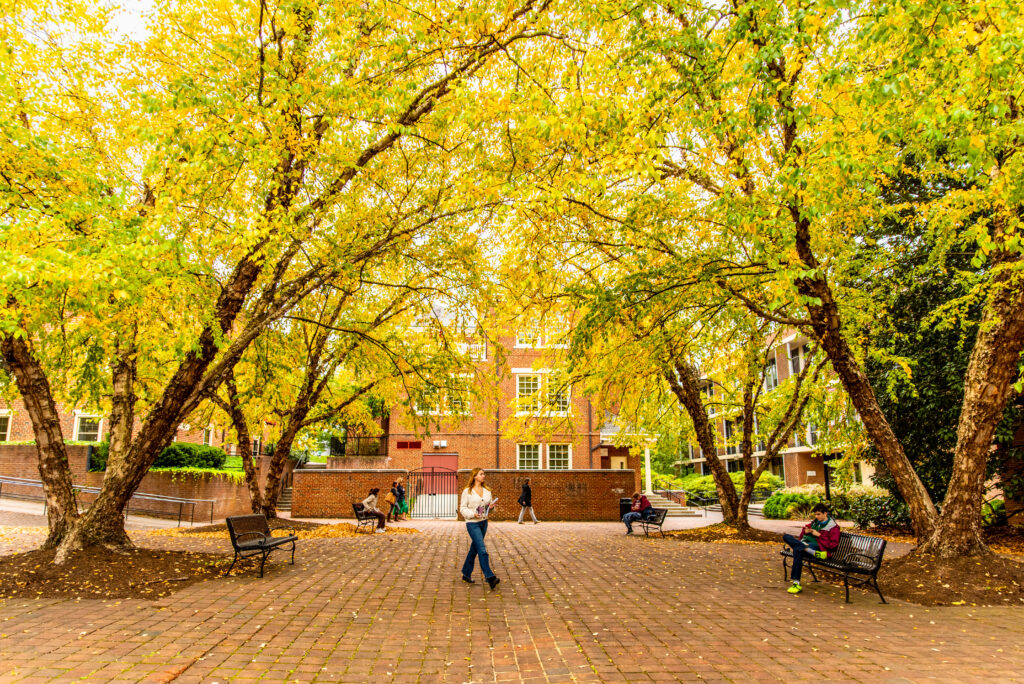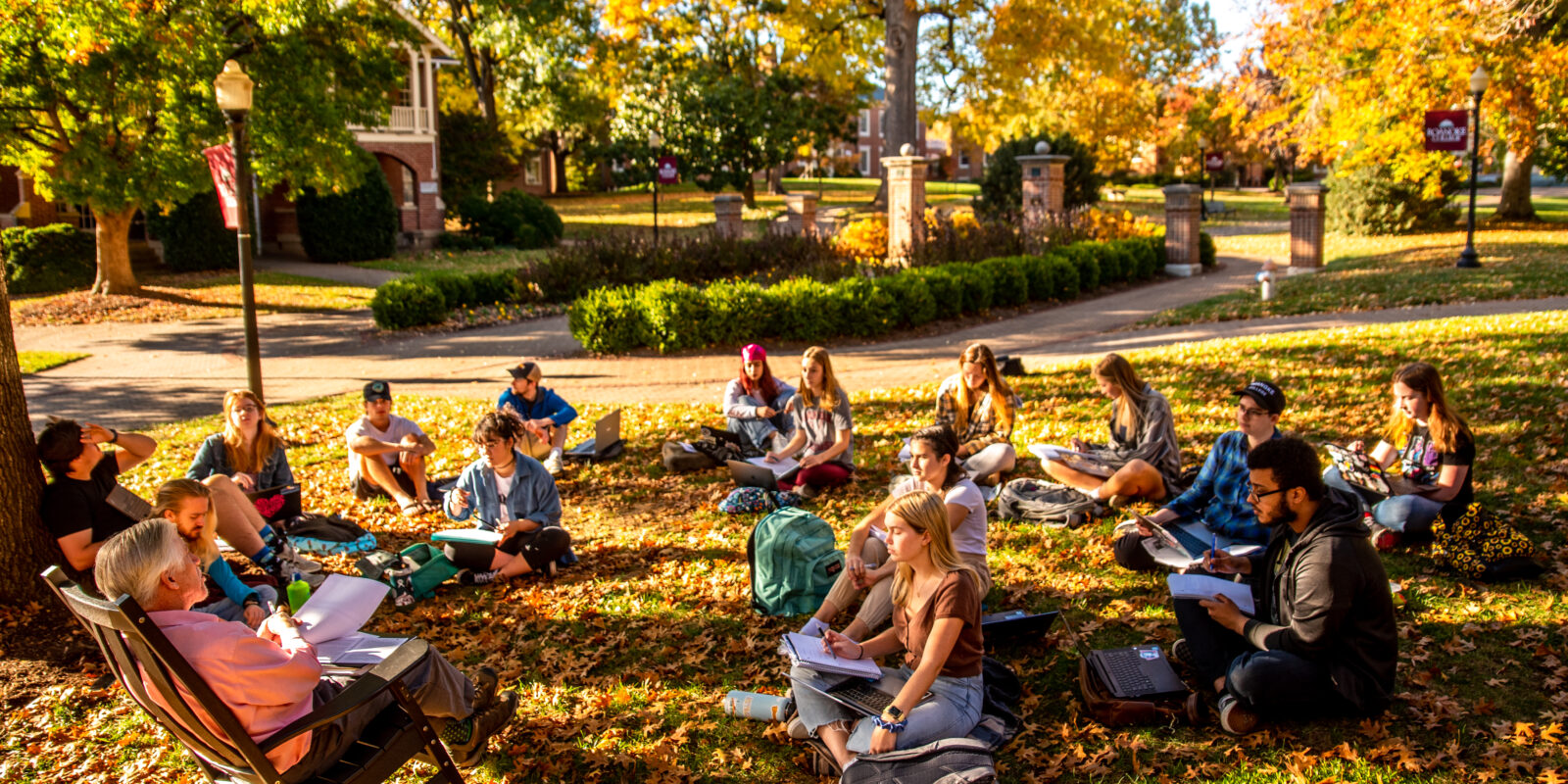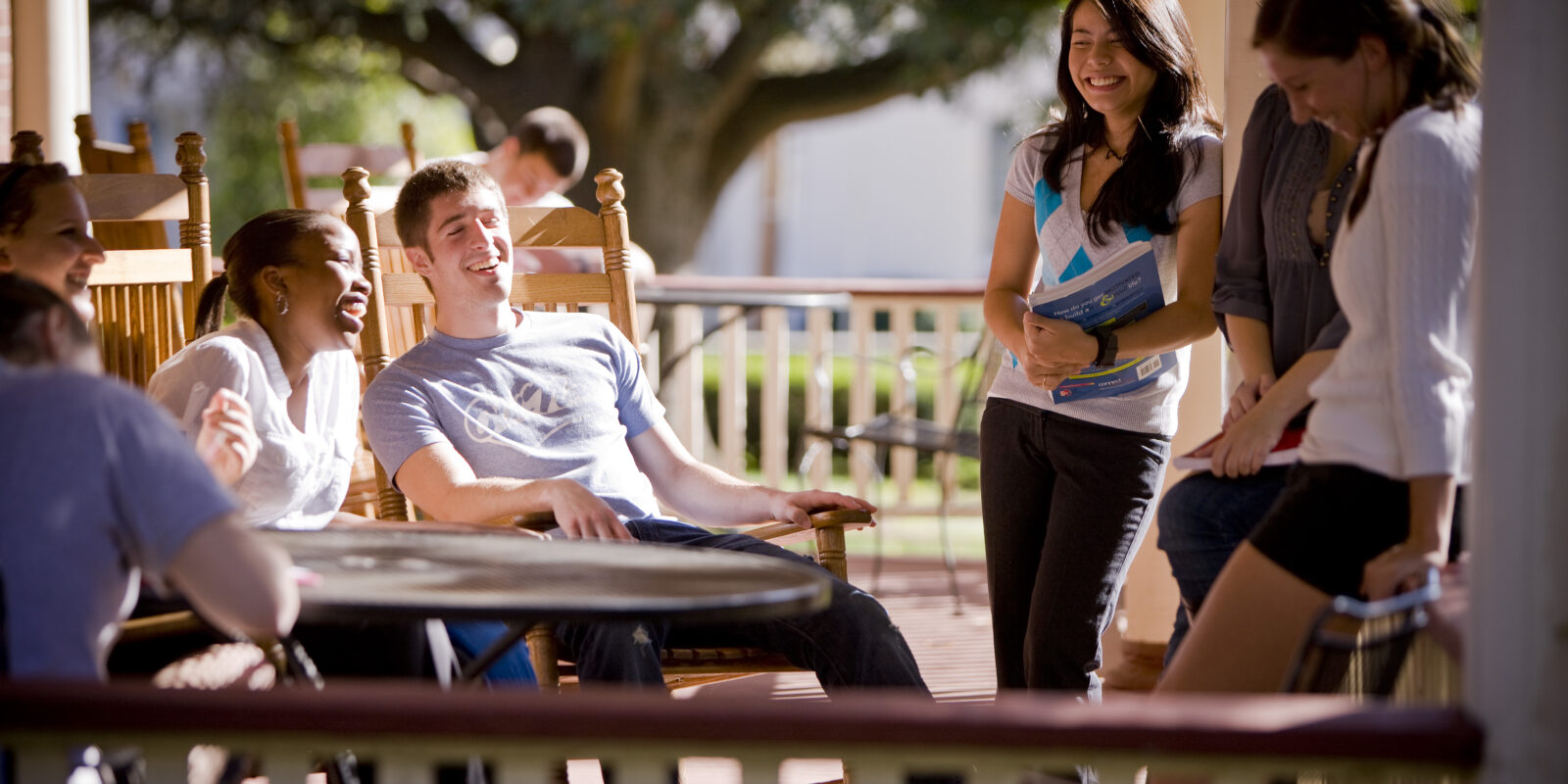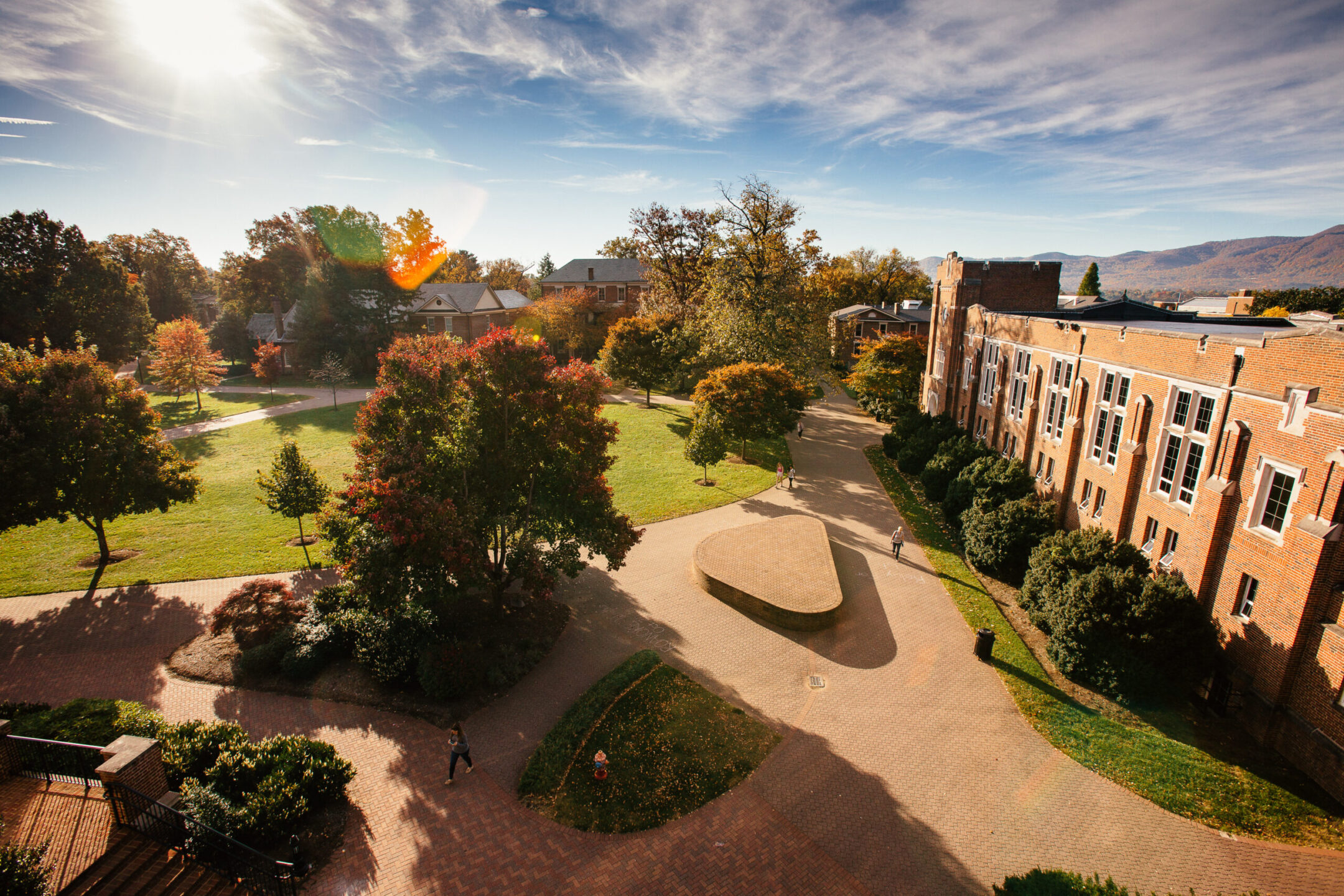Responsibilities of the Position
Reporting to the president and serving as a member of the president’s cabinet, the vice president for student success and the Roanoke experience (VPSS) champions a “student-ready, student-first” culture at Roanoke College, providing vision and strategic leadership for a comprehensive, integrated, and inclusive student-success ecosystem. The VPSS will join an eager, innovative, and collaborative leadership team to chart a dynamic future for Roanoke College. This includes fostering partnerships across campus to design experiences, environments, and support services that foster holistic learning and development, well-being, belonging, and success across the arc of the student experience. The VPSS will work especially closely with faculty in the design of the Roanoke experience, supporting the foundational role they play in students’ lives, learning, and success at the college. The VPSS will also lead a recently created division designed to bring together student-supporting units from across campus to create synergy, collaboration, and innovation around student success; develop cross-functional competency; and build logical succession pathways for department leaders. Functions within the division include new student and transition programs; academic support services (accessibility services, tutoring, and academic coaching); identity-based programming and support; advocacy, student conduct, and crisis management; residence life and housing; health and well-being; campus activities, student organizations, and leadership development; campus safety; civic engagement; spiritual life; and purpose, life, and career exploration. The VPSS will serve as a pivotal institutional change agent and strategic partner for other senior leaders to develop transformative learning experiences that meet the needs of today’s and tomorrow’s students and increase engagement, retention, and graduation rates among all students The VPSS will be expected to work across divisions and reporting lines to ensure that every decision and action align with our commitment to enhancing the student experience and academic excellence.
Additional responsibilities of the position include:
- Create college-wide partnerships and strategies to enact programs and practices that advance student learning and a shared vision for student access, belonging, well-being, and success.
- Oversee a leadership team comprised of the associate vice president for student success, dean of students, dean of the chapel, and director of residence life and housing.
- Work closely with the vice president for community, diversity, and inclusion to develop goals, outcomes, and metrics for advancing access, inclusion, empathy, and belonging as essential elements of the student experience.
- Design and deliver a comprehensive professional development program, rooted in a meticulous analysis of student needs, leveraging institutional data and aligning with national best practices.
- Work closely with the dean of students, director of residence life and housing, and colleagues in academic affairs to create a strategic plan for the development of living-learning communities that bridge academic and student life through the delivery of transformative on-campus living experiences.
- Partner with academic affairs, the teaching collaborative, and other campus partners to provide campus-wide learning opportunities for faculty and staff on topics related to student development, learning, co-curricular experiences, and student engagement.
- Maintain a visible profile on campus and with external partners who contribute to the student experience, including student athletic events.
- Cultivate a culture of assessment and evaluation for data-informed decision-making, iterative design, and continuous improvement.
- Develop and manage a robust fiscal strategy for the department, including budgeting and financial planning, resource allocation, expenditures, and efficiencies.
- Work closely with the vice president for business affairs and associate vice president for facilities management to design physical spaces and places for students that foster engagement, well-being, belonging, and success.
- Work closely with the vice president for academic affairs, vice president for business affairs, and vice president for enrollment management to develop student-centered policies and practices that minimize friction and maximize efficiency, care, and support.
- Work closely with the vice president for advancement to enhance philanthropic support for student success.
- Champion school pride, spirit, and tradition among students in partnership with the director of athletics.
- Report regularly to the president’s cabinet, faculty, staff, and board of trustees on opportunities, challenges, and trends related to student success.
- Serve as an integral member of the president’s cabinet.
Qualifications and Characteristics
A master’s degree in a relevant field and significant experience in higher education administration, including student affairs/student success units, are required. A doctorate is preferred. The ideal candidate will possess significant experience fostering learning and success among special student populations, including student-athletes and first-generation, transfer, international, underserved, and underrepresented students; expertise leveraging technology solutions, data, and metrics to inform strategies around student success, coordinated care, and engagement; and an entrepreneurial spirit, a disposition toward creative problem-solving, a willingness to take measured risks, and an abiding love for students and their learning.
Additional qualifications and characteristics of the ideal candidate for the position include:
- Exhibit exceptional personal and professional integrity and a commitment to the highest ethical standards for programs and personnel.
- Demonstrate an understanding of student learning and human development literature and in-depth knowledge of the technology, conditions, and research informing 21st-century higher education.
- Possess a deep understanding and knowledge of the contemporary challenges facing higher education, including finance, governance, enrollment management, and athletics, among others.
- Be able to manage multiple and competing priorities and take initiative in a dynamic, fast-paced environment.
- Possess a commitment to diversity, inclusion, belonging, and access.
- Ability to analyze complex problems, interpret operational needs, and develop integrated, creative solutions.
- Demonstrate leading others through change and developing teams with positive, action-oriented, and possibility-focused mindsets. Showcase interpersonal skills and be able to interact and work effectively with other administrators, faculty, staff, students, families, alumni, board of trustees, donors, community leaders, and members of the community at large.
- Develop effective partnerships and collaborations with others to design living and learning experiences, environments, and support structures.
- Possess deep knowledge of laws and regulations related to higher education, and experience with policy development and compliance.
- Demonstrate superb written and oral communication skills.
- Be passionate about students and the transformational power of education.

History of the Position
The VPSS position was established in 2023 to bring together departments and functions that previously reported through five different areas of the college. Roanoke College is building a more comprehensive approach to student success, and the new structure allows closer coordination between the units and enhanced collegiality between key members of the student success team.
Brian Reed has served as VPSS since August 2023 but will leave the role this summer to return to his family and former position in Montana.
Opportunities and Challenges of the Role
The vice president for student success is a position of broad and strategic leadership at Roanoke College. The vice president serves as the point person for student success and oversees the many offices that support the education, engagement, needs, and aspirations beyond the classroom of all students. President Shushok values senior leaders who foster collegiality, trust, and respect. As a member of the president’s cabinet, the VPSS is expected to contribute to strategic discussions that impact all areas of the college and bring expertise on student issues to the leadership team.
The VPSS is expected to work with senior academic and administrative leaders to establish systems of shared accountability for the retention of students, their out-of-class experiences, and their overall well-being. The vice president must promote a culture of assessment, data-informed decision-making, and continuous improvement that is designed for agility and allows the college to predict and respond quickly to students’ changing needs. The division will share outcomes with stakeholders and use them to support future planning.
The vice president will also focus on promoting professional growth for each individual within the division to enhance broader leadership skills and to promote dialogue regarding divisional and institutional goals, as well as current trends and best practices within their respective areas. The VPSS will work to build a strong sense of team among staff and build working relationships that emphasize collaboration, consistency, and equity. Staff should feel encouraged, challenged, supported, and confident about how they contribute to the divisional and institutional vision.
Additionally, the new vice president will be expected to:
- Champion a robust student experience that prioritizes students’ goals, strengths, learning, and agency.
- Convene strategic partners and stakeholders to develop a shared definition of student success across the student lifecycle and design a holistic, learning-focused, student-centered infrastructure for student support and exemplary care.
- Facilitate collaboration, innovation, cross-functional competency, and succession pathways among administrative units and individuals with direct and daily impact on the student experience and student success.
- Champion empathy and strengths-based mindsets toward students among faculty and staff; promote a culture in which students are essential partners in designing learning environments and experiences; and evaluate policies and practices through an inclusive, student-centered lens.
- Ensure ongoing efforts directed at creating an inclusive, friendly, and supportive environment for all students as the university becomes increasingly diverse with regard to socioeconomic, racial, and ethnic backgrounds, and that diversity and inclusion are reflected in the division’s structure and initiatives.
- Serve as a champion and advocate for the division, delivering a clear message that reinforces the value of student success staff and the contributions they make each day to the mission of the college.
- Actively engage students in a holistic manner, be highly visible throughout the campus, and be regarded as a role model for students, exemplifying what it means to be fully engaged with a passionate student population.
- Develop and support strong town/gown relationships through active participation in the Salem and Roanoke communities to build positive lines of communication, shared objectives, and efforts to enhance student success.
Measures of Success
At an appropriate interval after joining Roanoke College, several accomplishments will initially define success for the new vice president for student success.
- The VPSS will have reviewed organizational strengths and weaknesses and will have outlined the strategic direction and long-term plan for the division of student success consistent with the college’s mission and strategic plan.
- It will be important for the VPSS to assess the skills and knowledge of the staff, develop a strong sense of teamwork among staff, and build working relationships that emphasize an engaging and collaborative work environment.
- The VPSS will maintain a proactive, highly visible, well-respected, and established leadership presence on and off campus that is engaging, collegial, and highly effective.
- The student success division will be defined as a strong, highly functioning, well-regarded, and resilient team that works with synergy and shared purpose, readily collaborating across departmental and division lines with a demonstrated commitment to student success.

Institutional Overview
Roanoke College is a nationally ranked residential liberal arts college in Salem, Virginia. The Roanoke College experience is enhanced by its setting on a breathtakingly beautiful campus only minutes away from the scenic Blue Ridge Mountains and the city of Roanoke. The college celebrates a welcoming environment that has served the local region and beyond for nearly 200 years. Roanoke College is a place where every student who works hard has the opportunity to succeed. At Roanoke, students find a community that champions potential, providing essential learning and leadership through innovative academic programs and transformative educational experiences, giving them the mettle, mindset, and empathy to pursue lives of purpose, build meaningful careers, and meet society’s most pressing needs. Roanoke College is building momentum, adding new undergraduate and graduate programs, always enhancing the student experience, and continuing its success with NCAA Division III athletics.
Rooted and Open: Roanoke college’s commitment to community and belonging
As a member of the Network of Evangelical Lutheran Church in America, Roanoke College shares a commitment to the inclusive principles laid forth in Rooted and Open: the Common Calling of the Network of ELCA Colleges and Universities. The overarching principle of this calling is to equip graduates who are: “Called an empowered to serve the neighbor so that all may flourish.”
With approximately 40 percent of the current student population coming from underrepresented and underserved backgrounds, Roanoke College is also committed to fostering belonging, success, and well-being through living and learning environments, academic and personal support, and community engagement. Read Roanoke College’s Statement on Diversity. .
The Student Body
Total enrollment: 1,826
Male: 840
Female: 986
Lutheran students: 94
Students of color: 317
Virginia students: 1,010
International students: 49
Student-faculty ratio: about 12:1

Frank Shushok Jr.
get to know
Institutional Leadership
President Shushok was elected unanimously by the Roanoke College Board of Trustees on March 21, 2022. He began his term as Roanoke College’s 12th president on July 1, 2022.
Shushok holds a bachelor’s degree in history from Baylor University, a master’s degree in higher education and student affairs administration from The Ohio State University, and a doctor of philosophy in higher education policy, planning, and analysis from the University of Maryland, College Park.
The president brings 30 years of work experience in higher education to Roanoke College. He is known for his passion for integrating academic and student life and championing the role of faculty in the holistic development of students.
Shushok came to Roanoke College after 13 years at Virginia Tech, where he served as associate vice president, senior associate vice president, and vice president for student affairs. He was also a tenured associate professor of agricultural leadership & community education at Virginia Tech.

Benefits Overview
Roanoke College offers its employees a host of benefits, including health care, life insurance, flexible spending accounts, tuition assistance, and a variety of other benefits. To read more about the benefits offered at Roanoke, see here.
Application and Nomination
Review of applications will begin May 8, 2024, and continue until the position is filled. To apply for this position please click on the Apply button, complete the brief application process, and upload your resume and position-specific cover letter. Applicants needing reasonable accommodation to participate in the application process should contact Spelman Johnson at 413-529-2895 or email info@spelmanjohnson.com.
Salary is commensurate with experience. The Commonwealth of Virginia does not require public salary disclosure. For more information, please contact Spelman Johnson.
Visit the Roanoke College website at http://www.roanoke.edu
Roanoke College is an equal opportunity employer and actively seeks diversity among its faculty, staff, and students; women and members of under-represented groups are especially encouraged to apply.
Roanoke College values diversity in its community. Any form of discrimination, lack of respect, or act of intolerance against any person or organization based on race, religion, ethnic background, gender, gender orientation, or disability is in contradiction with college principles and unacceptable. Roanoke College does not discriminate against students, employees, or applicants on the basis of race, color, gender, creed, religion, age, sexual orientation, marital status, national or ethnic origin, disability, or veteran status.

